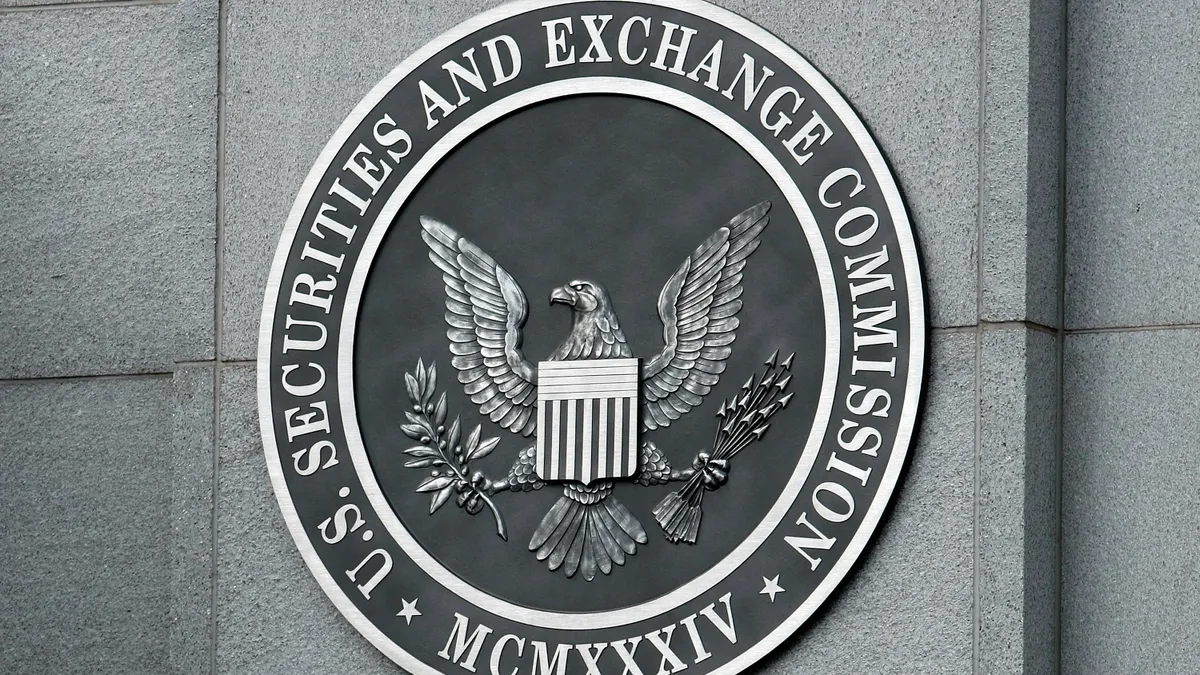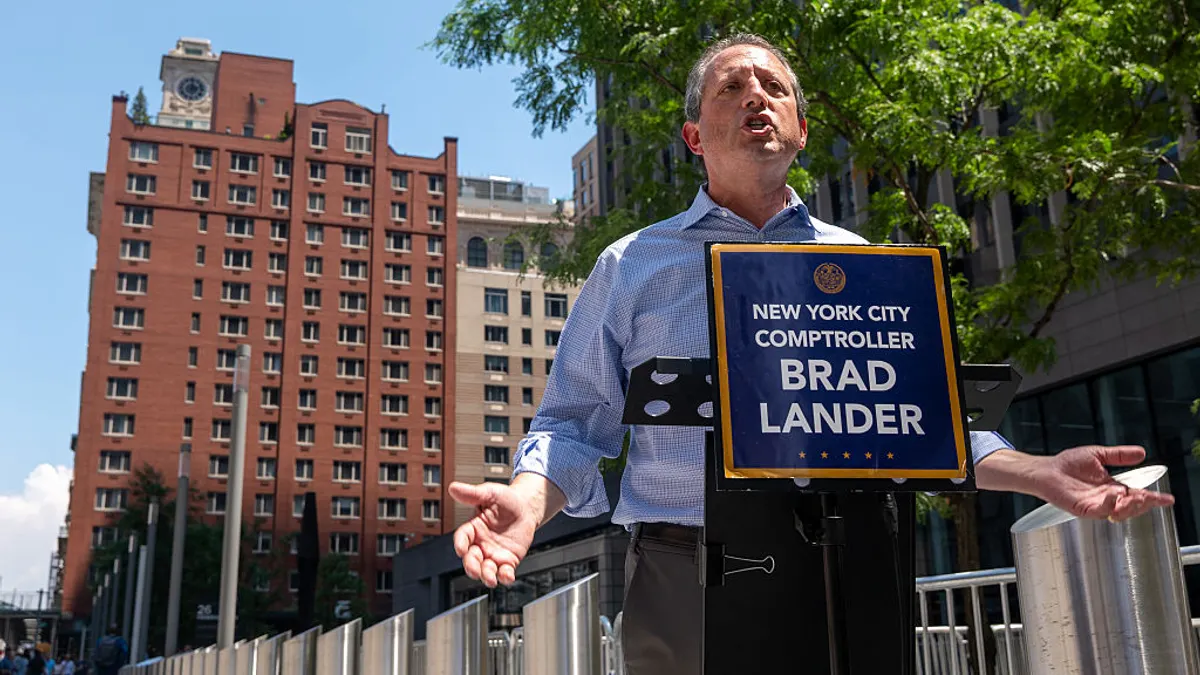Earlier this month, the Securities and Exchange Commission changed agency guidance on when asset managers are required to file longer disclosures about shareholder engagement on environmental, social and governance issues, prompting a pause in engagement from some of the nation’s largest asset managers.
The agency, under Acting Chair Mark Uyeda, issued an updated interpretation of Sections 13(d) and 13(g) of the Securities and Exchange Act of 1934 on Feb. 11 that will require investors who look to push company boards to make specific ESG-related actions to file longer disclosure reports.
The change in guidance caused confusion during proxy season and led BlackRock and Vanguard, the two largest asset managers in the nation, respectively, to temporarily pause their shareholder engagement meetings last week, according to reports.
Previously, passive and institutional investors were allowed to engage with management on executive compensation or ESG issues without it precluding them from filing abbreviated Schedule 13G reports about their stock ownership, according to law firm Ropes & Gray. A Schedule 13G reports stock ownership which exceeds 5% of a company’s total stock. The SEC’s latest guidance, however, will require investors who make recommendations on such issues to file longer Schedule 13D disclosures, typically required of activist investors or investors attempting a hostile takeover.
Uyeda’s guidance allows for investors to discuss with a company’s management “its views on a particular topic and how its views may inform its voting decisions, without more” without the longer disclosure. However, the agency will now interpret shareholders who go beyond that and exert “pressure on management to implement specific measures or changes to a policy may be ‘influencing’ control over the issuer.”
The new guidance was contained in an update to SEC interpretation on reporting requirements for shareholders that directly or indirectly share voting power for more than 5% of a company’s publicly-traded stocks, including an entirely new section with the updated shareholder engagement guidance.
Among the changes, longer disclosure will be required from shareholders who recommend governance actions such as removing staggered boards, switching to majority voting for board elections, eliminating poison pill plans or changing executive compensation plans, as well as shareholders who recommend companies “undertake specific actions on a social, environmental, or political policy.”
If investors make such recommendations and “explicitly or implicitly conditions its support of one or more of the issuer’s director nominees at the next director election on the issuer’s adoption of its recommendation,” they will now need to file a Schedule 13D report.
Additionally, the agency will interpret any shareholder who “discusses with management its voting policy on a particular topic and how the issuer fails to meet the shareholder’s expectations on such topic, and, to apply pressure on management, states or implies during any such discussions that it will not support one or more of the issuer’s director nominees at the next director election unless management makes changes to align with the shareholder’s expectations,” as looking to exert pressure or influence a company’s operations and necessitate the longer disclosure.
“Investors will need to closely consider this new guidance in determining whether and when engagement with issuers requires filing on a Schedule 13D rather than a Schedule 13G,” Ropes & Gray Counsel Marc Rotter said in an analysis of the update.
Vanguard told Reuters that it is reviewing the guidance “to determine what, if any, modifications to the Vanguard funds' passive approach to investment stewardship activities may be warranted."
BlackRock has since resumed its shareholder engagement meetings, a company spokesperson confirmed to ESG Dive Monday.
“We are complying with the new requirements including by highlighting our role as a ‘passive’ investor at the start of each engagement,” a company spokesperson told Bloomberg Thursday. “BlackRock does not use engagement as a way to control publicly traded companies.”
Vanguard did not immediately respond to a request for comment.


















